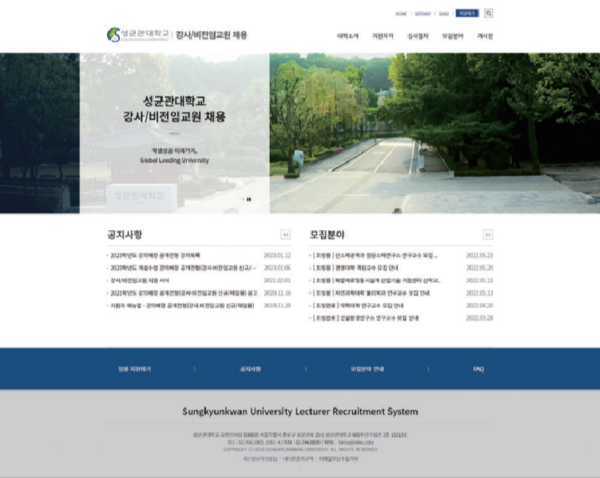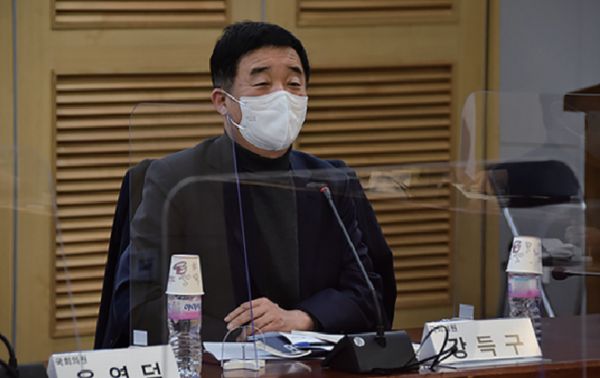On December 16th , 2022, the Ministry of Education (MoE) held a conference to discuss the deregulation of universities in Korea. Deregulation refers to the abolition of university assessment and allows universities to establish or restructure new departments. However, there are questions as to whether the reformed agenda would bring academic innovation or deepen the regional polarization of univerisities. Therefore, the Sungkyun Times (SKT) will look into the upcoming changes in higher education, including at Sungkyunkwan University (SKKU)
University Deregulation: What Is Going to Change?
The MoE has announced that it would deregulate universities for the first time in 26 years to allow students to adapt to high-tech industry and autonomous innovation. According to the announcement, conditions for buildings, land, faculties, and assets — the four minimum qualifications for a university to work as an educational institution — will be eased. As the academic environment altered due to an increase in remote learning and resource sharing, the minimum area secured per student of National Science, Engineering, Medicine, the Arts, and Physical colleges decreased to 14m2 . In terms of land, universities now only need to retain the minimum size provided by the Building Act, which is much smaller than before. Furthermore, the deregulation of faculty allows universities to restructure departments more freely. Previously, universities could only employ part-time lecturers for up to one-fifth of all faculty. However, the liberalization has enlarged the number to one-third, and from 2024, universities do not need to hire new faculty when establishing or merging departments. Lastly, considering local universities’ financial crisis, the reform agenda has eased the minimum conditions so that universities can expand their budget with extra assets. On top of this, the MoE has abolished the university assessment because it burdens institutions with having to stick to a set of standards and allows uniform evaluation by the government.

Concerns about the Deregulation
-Satisfied Universities, Dissatisfied Students
While university autonomy increases greatly with eased restrictions, some worry about the potential side effects. The biggest concern is that the deregulation may commercialize colleges and lower the quality of education, thus harming the essence of universities. In addition, confined spaces will disadvantage students whose experimental research and practical training are crucial in their majors. In other words, a university’s increased financing would inevitably be done at the expense of students’ rights to learn. Moreover, unlike the agenda’s original purpose to diversify university courses and utilize specialists in the workplace, it also allows the employment of part-time lecturers to be abused. As the financial issues of universities worsen, it is anticipated that the number of part-time lecturers will increase. According to a MoE statistics in 2022, the number of full-time professors dropped by 1.3% to 89,257, while part-time lecturers increased by 4.1% to 142,414 in 2022. However, the problem is that even if the deregulation has replenished university funds, part-time lecturers still go through difficulties in compensation, working conditions, and research environments. In an interview with the University News Network, Lee Jong-bok, chairman of the Korean Private University Professors’ Union, said, “As university education is now prevalent, the government should be responsible for at least a certain portion of the remuneration or promotion of faculty members.” Therefore, increasing employment without enhancing circumstances for part-time lecturers might result in insecurity in employing professors, which also could lower the quality of education.

-Gap between Majors, Gap between Universities
The growing gap between majors is another issue surrounding higher education deregulation. As deregulation aims to promote autonomous innovation in universities and student training, in a few years, a rise in the number of majors focused on high-tech industry is anticipated. Moreover, local universities are likely to accelerate this by integrating preexisting departments as they receive funding from the government to build new ones. However, the lack of majors for basic studies may get worse because of the deregulation supporting such trends. According to national statistics from Seoul Economy Daily in 2019, 88 out of 180 universities had no major for basic studies. In addition, as the school-age population declines and the popularity of majors directly associated with employment increases, the alleviation without funding for basic research will worsen the imbalance between academics. Moreover, even if local universities establish new majors, they can still have difficulties in increasing enrollment. If metropolitan and local universities are both permitted to create new majors, the gap between such universities would worsen because the capital area has better infrastructure. Likewise, while the deregulation-induced division between academics and universities is becoming more problematic, conversations on how to close this gap need to develop.
Deregulation for Everyone
-The Necessity for the Minimal Finger Line
First, parts of extra areas retained by the deregulation must be utilized freely for educational purposes, just as some primary assets have been reinvested in education. If all extra spaces are open for sale or commercial usage, it would go against the whole aim of establishing a university. Therefore, restricting the use of excess spaces only for educational purposes by law is required. In addition, the working environment of part-time lecturers must also be improved for higher quality of educational research. Although the current employment uncertainty might have a detrimental effect, the conditions for part-time lecturers should be recovered to enhance professionalism. Thus, as part-time lecturers increase in number, the government should expand the budget for executing the Higher Education Act to close the pay gap with full-time professors. However, it is also vital to gradually strengthen the part-time lecturers’ capability and the transparency of their recruiting process to avoid exploiting enhanced conditions.
-A Roadmap toward Balanced Development
The need to activate and support basic research is constantly increasing. Accordingly, on September 16th, 2022, the Ministry of Science and ICT (MSIT) held a conference to gather the ideas of the research community in an attempt to improve basic academic prospects. Simultaneously, the MSIT also declared that it would invest \2.5 trillion in fundamental research projects beginning from this year. In addition, Kang Deuk-gu, a member of the Democratic Party (DP), proposed the General Law on Basic Academic Studies last December to increase Research and Development (R&D) financing and research management by the government. Some also claim that perceptions on basic science fields and wage levels should be improved apart from research funding. Moreover, legal conversations about the proposal to negotiate relevant modifications for the law must also be enforced. It is also necessary to update the legislation as quickly as possible to support the basic studies fields, which have no general law. However, another ongoing issue remains that the gap between universities must be resolved. Splitting the MoE’s authority to support university funding is vital; it is essential to empower the federal government to financially support universities and permit the local government to encourage establishing specialized majors.

The Yoon Seok-yeol administration dramatically enhanced the autonomy of universities by alleviating preexisting regulations. However, the liberalization should result in educational innovation, not the freedom to pursue personal gain. Due to the unprecedentedness of the reformed policy, voices of criticism are growing louder. Proper deregulation will be necessary to solve the ever-declining school-age population and outdated educational policies effectively.
